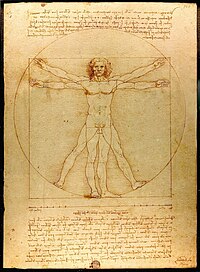An editor has launched a
copyright investigation involving this section. The text under investigation is currently hidden from public view, but is accessible in the
page history. Please do not remove this or restore blanked content until the issue is resolved by an
administrator,
copyright clerk, or
volunteer response agent.
The purported copyright violation copies text from
https://humanists.international/policy/amsterdam-declaration-2002 (
Copyvios report); as such, this page has been listed on
the copyright problems page.
Unless the copyright status of the text of this page or section is clarified and determined to be compatible with
Wikipedia's content license, the problematic text and revisions or the entire page may be
deleted one week after the time of its listing (i.e. after 06:58, 20 January 2024 (UTC)).
.mw-parser-output .hidden-begin{box-sizing:border-box;width:100%;padding:5px;border:none;font-size:95%}.mw-parser-output .hidden-title{font-weight:bold;line-height:1.6;text-align:left}.mw-parser-output .hidden-content{text-align:left}@media all and (max-width:500px){.mw-parser-output .hidden-begin{width:auto!important;clear:none!important;float:none!important))What can I do to resolve the issue?
If you hold the copyright to this text, you can license it in a manner that allows its use on Wikipedia.
You must permit the use of your material under the terms of the
Creative Commons Attribution-Sharealike 3.0 Unported License (CC BY-SA 3.0) and the
GNU Free Documentation License (GFDL) (unversioned, with no invariant sections, front-cover texts, or back-cover texts).
Explain your intent to license the content on
this article's discussion page.
To confirm your permission, you can either display a notice to this effect at the site of original publication or send an e-mail from an address associated with the original publication to permissions-enwikimedia.org or a postal letter to the
Wikimedia Foundation. These messages must explicitly permit use under CC BY-SA and the GFDL. See
Wikipedia:Donating copyrighted materials.
Note that articles on Wikipedia must be written from a
neutral point of view and must be
verifiable in published third-party sources; consider whether, copyright issues aside, your text is appropriate for inclusion in Wikipedia.
You can demonstrate that this text is in the public domain or is already under a license suitable for Wikipedia. Explain this on
this article's discussion page, with reference to evidence.
Wikipedia:Public domain and
Wikipedia:Compatibly licensed may assist in determining the status.
Otherwise, you may rewrite this page without copyright-infringing material. Your rewrite should be placed on this page, where it will be available for an administrator or clerk to review it at the end of the listing period.
Follow this link to create the temporary subpage. Please mention the rewrite upon completion on
this article's discussion page.
Simply modifying copyrighted text is not sufficient to avoid copyright infringement—if the original copyright violation cannot be cleanly removed or the article reverted to a prior version, it is best to write the article from scratch. (See
Wikipedia:Close paraphrasing.)
For license compliance, any content used from the original article must be properly attributed; if you use content from the original, please leave a note at the top of your rewrite saying as much. You may duplicate non-infringing text that you had contributed yourself.
It is always a good idea, if rewriting, to identify the point where the copyrighted content was imported to Wikipedia and to check to make sure that the contributor did not add content imported from other sources. When closing investigations, clerks and administrators may find other copyright problems than the one identified. If this material is in the proposed rewrite and cannot be easily removed, the rewrite may not be usable.
Steps to list an article at
Wikipedia:Copyright problems:
Add the following to the bottom of
Wikipedia:Copyright problems/2024 January 13: * ((subst:article-cv|Amsterdam Declaration)) from
https://humanists.international/policy/amsterdam-declaration-2002. ~~~~
Add the following template to the talk page of the contributor of the material: ((subst:Nothanks-web|pg=Amsterdam Declaration|url=
https://humanists.international/policy/amsterdam-declaration-2002)) ~~~~
Place ((
copyvio/bottom)) at the end of the portion you want to blank. If nominating the entire page, please place this template at the top of the page and set the "fullpage" parameter to "yes".
